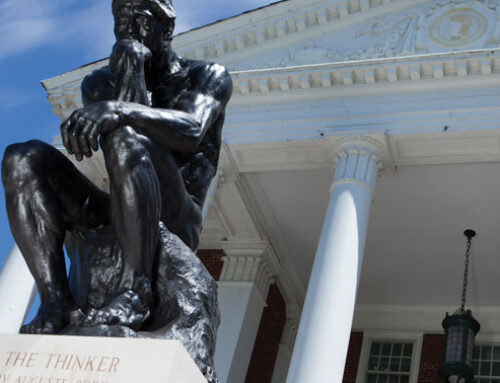By Simon Isham–
She is a beautiful brown woman from Hawaii, endowed with a full head of curls that shake when she’s feeling sassy and envelop the face of anyone she hugs — which she does freely and frequently. She is an educated woman with a master’s from NYU’s Arthur L. Carter Journalism Institute, who scored a job as the online editor of People magazine before she turned 30. She is a resident of New York City, where she lives with her boyfriend Aaron Tredwell, a photographer and documentary filmmaker, who has captured her from all her most flattering angles. She is an “It girl”; she is Janet Mock.
Mock is a writer and speaker who was launched onto the national scene in 2011 when she came forward as a trans woman in a profile in Marie Claire. Since then, she has toured the country speaking about her personal intersection of identities.
She is the founder of the Twitter tag #girlslikeus, a celebratory label cataloging the activities and achievements for trans women for whom the term “transgender” might not perfectly fit. She was also featured on HBO’s documentary, “The Out List,” which aired this summer, along with 16 other LGBT celebrities who shared their experiences of being openly LGBT in America. Other people who made the cut are Ellen DeGeneres, Neil Patrick Harris and Wanda Sykes.
Mock delivered U of L’s 2013 Pride Week keynote speech on Thursday, Oct. 3 at 7 p.m. in the Multipurpose Room of the Student Activities Center. The week began with a cookout outside the Intersection and the Red Barn, and concluded with the annual keynote. Approximately 100 people from the university and the surrounding community were in attendance.
U of L doctoral student and trans man Jayden Thai was selected to introduce Mock.
“When I first identified as a trans man, I struggled to find familiar faces and role models whom I could identify with — not only people who identify like me, but also look like me. I was born and raised in Kentucky, and anyone who is from Kentucky and identifies as queer or trans would agree with me when I say that it is extremely difficult to find community here, especially for folks of color. And even now, I am still struggling.
“So for me personally, Janet Mock is going to speak out and raise awareness (of) the triumphs and portrayals of trans folks, especially trans folks of color and trans women of color. It’s unbelievably important and impactful, and it really hits close to home.”
Mock took the stage to thunderous applause.
“When I think of Pride, I think of the trans women who came before me, specifically the poor-raised street queens who had nothing but their pride and their bodies, and who still, despite having nothing, chose to fight back and to resist, and unapologetically take up the space they felt they deserved in this hostile world,” she said.
Some of the historical trans women activists of color whom Mock highlighted were Sylvia Rivera, Marsha P. Johnson and Miss Major Griffin-Gracy. She credits these women as her role models, but acknowledges that she wouldn’t be where she is today without some personal help as well.
Mock knew that her family loved her, but was unsure that they would accept the idea of their son transitioning to life as a woman. That is when, in the 7th grade, Mock met green-haired fellow trans girl Wendi, whose queen-like confidence and eyebrow-tweezing expertise effectively showed Mock the ropes.
“(She was) the first one who saw me as a girl, which was pivotal to my upbringing,” said Mock. “She was also the first person to give me my first (hormone replacement therapy) pills, behind my parents’ back, at 15 … I didn’t feel like I needed to consult with anybody about my body, but I also knew that having a kid like me was a lot for them to handle. I took a lot of the initial steps without them.”
Eventually, though, while still in high school, Mock’s parents softened to the idea of having a daughter. “If you’re going to do this, you’re going to do it right,” her mother told her, referring to hormone therapy. At 18, just after her first semester of college, Janet arrived in Thailand for her sex change operation — a huge relief after reaching adulthood in a body that didn’t match.
After being the first person in her family to attend college and subsequently moving to New York City to pursue her graduate education, Mock felt that she was “living her Carrie Bradshaw-inspired fantasy.”
But along with these feelings of joy came feelings of guilt and shame: Mock knew that many trans women who had not had the opportunities that she had had. These women eked out lives on the streets, often becoming victims of the dangerous world of human trafficking. In her early twenties, being aware of these problems but doing nothing to stop them, Mock blamed herself. Like Thai, she had trouble finding role models, and saw few people like her speaking out against these injustices. That was when she decided to contribute her voice.
“In each and every event that gives me the space to share my story, I share the floor with Sylvia Rivera,” she said, emphasizing the importance of those who have come before, as well as those currently “activating.” Trans woman Laverne Cox, who plays the recurring role of Sophia Burset on the wildly popular Netflix original series “Orange is the New Black,” is one such figure whom Mock identified as having the mass appeal needed to make a real change.
“We must never forget that the legacy of survival and resistance in our community is deep … they’re fighting for their lives … We must not forget that young folks are still homeless, that our siblings are still fighting HIV AIDS. It’s not gone. That our sisters still vanish in the darkness of street corners, and that our people are still being hunted down and killed because of who they are.
“So I ask you today, in this beautiful university, how are you going to use your story, your voice and you experiences of access and oppression to move this movement forward?”
The LGBT Center, which organized Mock’s keynote, took the evening as an opportunity to recognize the contributions that U of L is making to the struggle for equality. LGBT Center Director and Assistant Provost for Diversity Brian Buford said that last year’s Feast on Equality raised over $86,000 for the center, and that U of L received a perfect rating of five stars as a part of Campus Pride’s national LGBT Climate Index. Buford also announced the presentation of two awards.
The first-ever Outstanding Alumnus Award was presented to Greg Bourke, a 1979 graduate of the College of Arts and Sciences. He made headlines earlier this year when he was forced to resign as the assistant scoutmaster of his son’s Boy Scout troop, after the organization’s leadership discovered his sexual orientation.
“I grew up about a mile and a half from here, I used to ride my bike to campus, I have always been a U of L fan … being a part of the (LGBT Center) Alumni Council has allowed me to reconnect to the university.” Bourke said. “You are all very fortunate to have a welcoming, open LGBT community … it was a very difficult time to be a gay person on campus in 1979.”
The Cardinal spoke with Bourke in February, in a story which can be found here.
The center’s Assistant Director Lisa Gunterman and Office Assistant Hilton Airall presented the Ally Award to Dr. David Weigman, who has been working to promote LGBT equality at U of L’s Health Sciences Campus.
“I classify myself as a white liberal from the 60s … we are still here, and we believe that every person should be valued, acknowledged and I would hope even loved. That’s really what it’s all about.” Weigman said.
Mock’s speech was followed by a dance for students in the Red Barn. The Student Activities Board provided a DJ, popcorn and snow cones.
Mock’s upcoming book, “Redefining Realness: My Path to Womanhood, Identity, Love and So Much More,” is the first of its kind ever to be published at a mass-market printing house by a trans woman of color. It will be released on Feb. 4, 2014 through Atria Books, a subsidiary of Simon and Schuster. It can be preordered at Indiebound, Amazon, Barnes and Noble or the Apple iBooks store.
Photo by Johnathon Hockensmith





